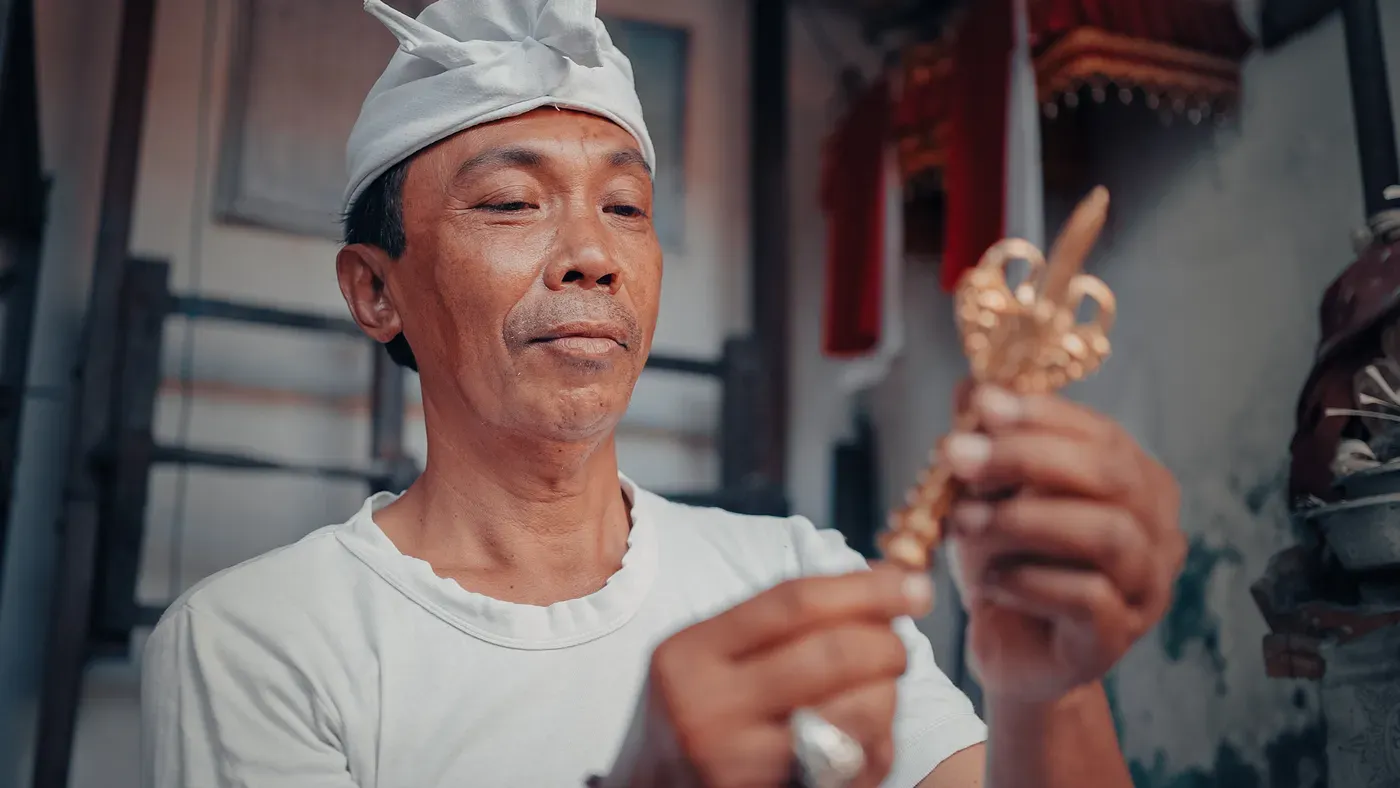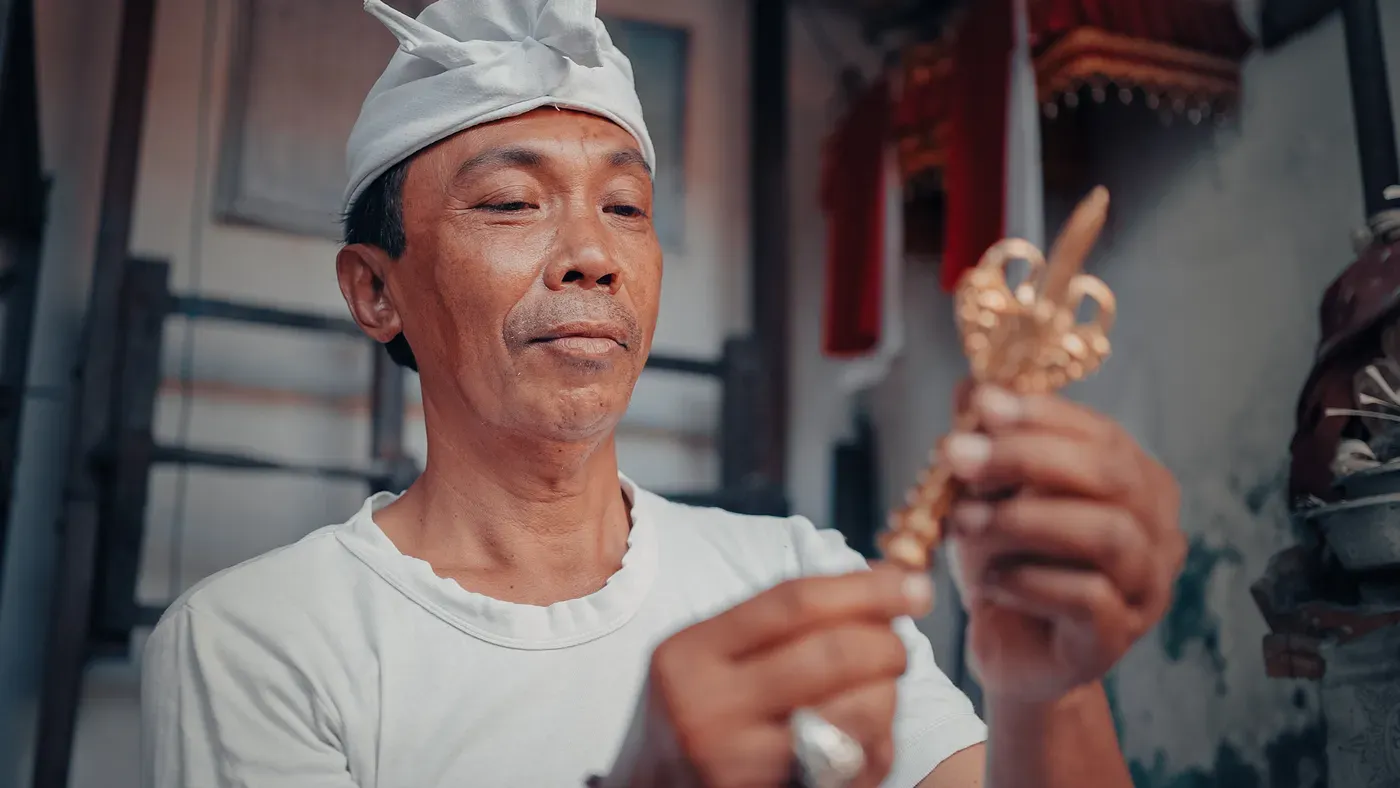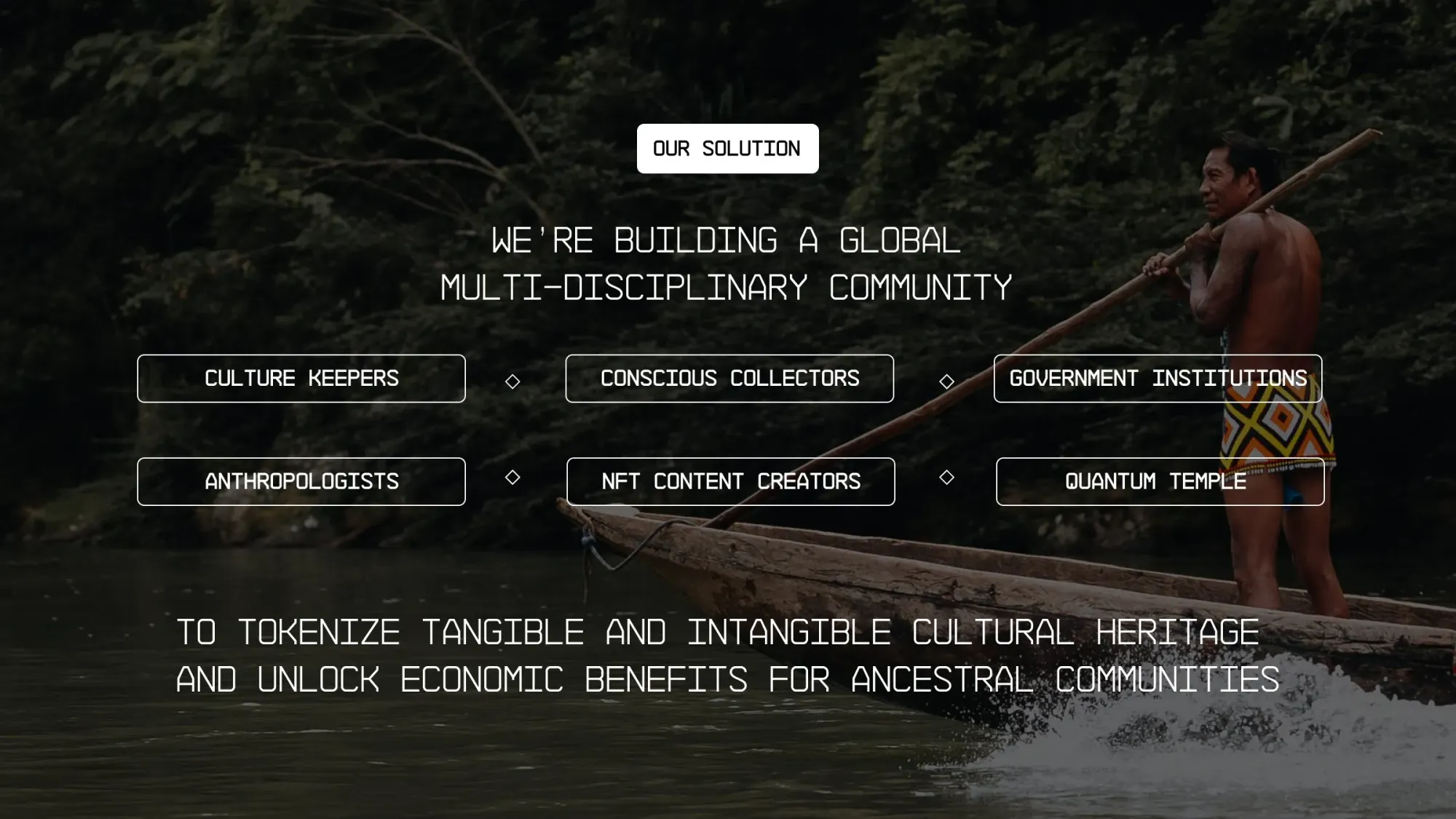The Importance of Cultural Heritage by Linda Adami, CEO of Quantum Temple

Cultural heritage is fundamental to all our lives
When we embrace curiosity, seeking to better understand other people and respect our differences, we learn there are many different approaches to life, all of which have value. Discovering cultures other than our own teaches us about the world and about ourselves.
Cultural heritage, therefore, is so much more than just the stories individual communities tell or the traditions they uphold: it has a fundamental role in shaping our collective identity and in connecting us as humans.
Cultural heritage is the glue that binds people together as a community. From the Pande, an ancient clan of bell smiths in Bali preserving their 1000-year-old tradition, to the Embera’ Tribe in Panama, who pass down the ancestral knowledge of medicinal plants, we believe the cultural web of life should not only be preserved but also become a catalyst for economic and social transformation.

Sadly, however, the problems faced by local communities trying to preserve their cultural heritage are multifaceted.
Because most cultural keepers (such as local artisans and traditional performers) earn salaries, on average, around US $2 a day, there’s little financial incentive to continue the traditions of their ancestors. Beyond this pressing concern, it can be difficult for communities to share their knowledge and customs when they lack the necessary digital infrastructure, and if they do have access to resources, they may not have the skills to effectively capitalize on them.
Developing countries in particular have for long faced this challenge, but with the onset of COVID19, the situation has reached a crisis point worldwide. Countries that once relied on footfall to both sustain their tourism industries and raise awareness of their heritage suffered a blow as COVID19 restrictions decimated global travel.
The result was a combined loss of US $2.1 trillion to global tourism revenue in 2020 and in 2021 (UNWTO). As is sadly often the case, women, indigenous peoples, rural communities, and casual workers have been among those most affected.
Quantum Temple exists to honor ancestral cultures and pioneer a new model for their preservation via Web3
If cultural keepers cannot afford to pursue their activities, we all lose the benefit of generations of accumulative skill; if there’s no platform for global cultures to preserve and share their knowledge, we could both lose their wisdom and miss out on a fundamental resource for our futures. The question we found ourselves asking at Quantum Temple is:
“How do we provide incentives for ancient traditions to be preserved and create a bridge between the past and the future?”
Quantum Temple was born out of the vision to honor lineages of culture keepers and create a new incentive model for cultural and economic resiliency.
Our mission is to develop the first-ever decentralized record for heritage that unlocks regenerative funding for local culture keepers through Web3.
Our model is based on multi-disciplinary alliance between culture keepers, government institutions, civil society, curatorial anthropologists, content creators and Quantum Temple to tokenize what the UNESCO defines as tangible and intangible cultural heritage while providing economic and social benefits to local communities.

Crucially, we do this in a way that not only preserves invaluable knowledge for posterity but also enables both recognition and economic funding for these communities; by tokenizing cultural heritage using NFTs, it becomes a verifiable and tradable asset — the value of which can be shared with culture keepers and their communities in perpetuity.
Our initiatives are connecting and empowering communities
In our aim to honor local culture keepers, ensuring their heritage is embedded in our future, we’ve started a dialogue with communities across Asia and Latin America to clearly define challenges and co-create impactful solutions.
So far we’ve received incredible welcome and support from those we’ve worked with; they overwhelmingly see Quantum Temple as an opportunity to elevate their stories, traditions, and knowledge to the rest of the world.
Facilitating communities to build the financial resilience to protect their heritage is also integral to our mission.
For example, a dance school in central Bali we are currently working with had closed for 2 years because of COVID-19, and the owners were forced to return to farming to provide for their livelihoods. However, since partnering with Quantum Temple and co-creating an NFT representing the Chandrawasi Dance, their outlook has begun to change.

After the release and revenue generation of their NFT sale, the school will be able to share its traditions and benefit from a resilient source of income. In addition, Quantum Temple will be providing them with direct access to connectivity, crypto wallets, and education so they can be fully self-reliant in Web3.
To close
Becoming part of Quantum Temple doesn’t just allow you to discover and connect with the traditions, beliefs, and practices of local communities worldwide. It also invites you to become instrumental in ensuring their knowledge is protected and embedded in our future.
We’ll be releasing our roadmap soon, with more details on how you can get involved.
In the meantime, signup for our waitlist to be the first one to get notified.
About our Founder Linda
Linda Adami is an Italian-born economic strategist with a deep commitment to social impact, with almost ten years of experience in emerging markets across Central America, South East Asia, and the Gulf.

After graduating with Honours in Political Economy from King’s College London, she worked at the intersection of international development, research, and innovation at top-tier private and public institutions.
Most recently she has been working with the Government of Dubai at the Dubai Future Foundation where she developed public strategies and a global community platform called Dubai Future Talks, which brings together pioneers, academics and artists, including Jeffrey Sachs, will.i.Am, Neil DeGrasse Tyson, Bjarke Ingels, and Nick Bostrom.